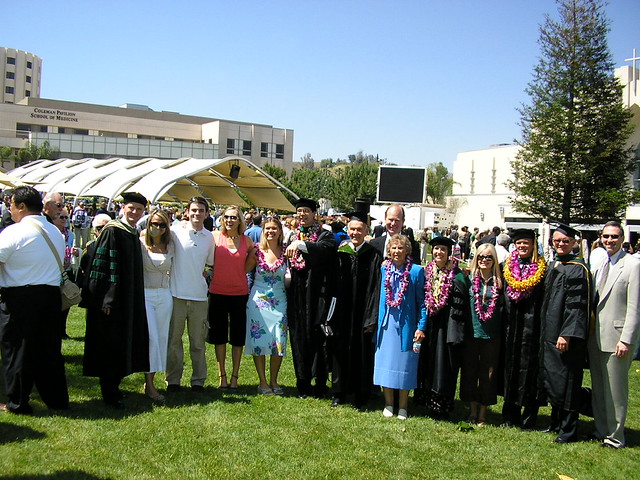Regardless of whether you believe that the hardest core criminals should be killed, or whether you believe that the death penalty is immoral, we should all agree that the death penalty as it exists today is not serving its intended purpose. Because the death penalty entails a lengthy appeals procedure, very few inmates sentenced to death are ever killed. Since 1978 when the death penalty was reinstated in California, only 13 inmates have been executed. Many more have died of old age. While some death penalty supporters argue that we could just speed up the appeals process, that is simply not realistic in this day and age, where advanced forensic evidence such as DNA testing has proved that innocent people have been sentenced to death. It is simply not acceptable to our society that we should allow innocent people to be put to death mistakenly, so great care is taken to prevent that (and even still the record is imperfect). Given the realities of the present situation, one can hardly argue that the modern death penalty has any special deterrent effect beyond a life sentence.
At the same time, the cost of maintaining a "death row" has been estimated at over $4 billion since 1978. Death row inmates are specially segregated, and require special handling and extra guards. Ironically, even though the law provides for criminals to work in prison and have their wages garnished toward repaying their victims, death row inmates are often exempted from working because of the special handling required (extra guards, not allowed to mix in the yard with other prisoners, etc).
Prop 34 would replace the death penalty with a life sentence with no possibility of parole. This would eliminate the need for the special "death row" protocols, saving the state upwards of $100 million each year. The most heinous criminals could then be forced to work, and to pay back debts to their victims. The law would never allow them to be released. The commercials claiming that this proposition would let dangerous criminals out are just plain lying, and the ballot pamphlet argument against this prop is completely disingenuous on this point. If you read the actual proposition text yourself, it is quite clear that the death penalty is replaced with "imprisonment in the state prison for life without the possibility of parole". Moreover, explicit language is added to require that the prisoners work and to have their wages garnished to repay any debts.
It is noteworthy that a number of conservative, tough-on-crime former supporters of the death penalty have endorsed Prop 34. These include Donald Heller, author of the 1978 proposition that reinstated the death penalty, Ronald Briggs who worked with his father to spearhead the 1978 campaign, and Jeanne Woodford, a former chief warden at San Quentin, who supervised four executions. If these death penalty proponents realize that the death penalty is not working, it is definitely time for change. For all these reasons, I urge a YES on 34 vote.
At the same time, the cost of maintaining a "death row" has been estimated at over $4 billion since 1978. Death row inmates are specially segregated, and require special handling and extra guards. Ironically, even though the law provides for criminals to work in prison and have their wages garnished toward repaying their victims, death row inmates are often exempted from working because of the special handling required (extra guards, not allowed to mix in the yard with other prisoners, etc).
Prop 34 would replace the death penalty with a life sentence with no possibility of parole. This would eliminate the need for the special "death row" protocols, saving the state upwards of $100 million each year. The most heinous criminals could then be forced to work, and to pay back debts to their victims. The law would never allow them to be released. The commercials claiming that this proposition would let dangerous criminals out are just plain lying, and the ballot pamphlet argument against this prop is completely disingenuous on this point. If you read the actual proposition text yourself, it is quite clear that the death penalty is replaced with "imprisonment in the state prison for life without the possibility of parole". Moreover, explicit language is added to require that the prisoners work and to have their wages garnished to repay any debts.
It is noteworthy that a number of conservative, tough-on-crime former supporters of the death penalty have endorsed Prop 34. These include Donald Heller, author of the 1978 proposition that reinstated the death penalty, Ronald Briggs who worked with his father to spearhead the 1978 campaign, and Jeanne Woodford, a former chief warden at San Quentin, who supervised four executions. If these death penalty proponents realize that the death penalty is not working, it is definitely time for change. For all these reasons, I urge a YES on 34 vote.


